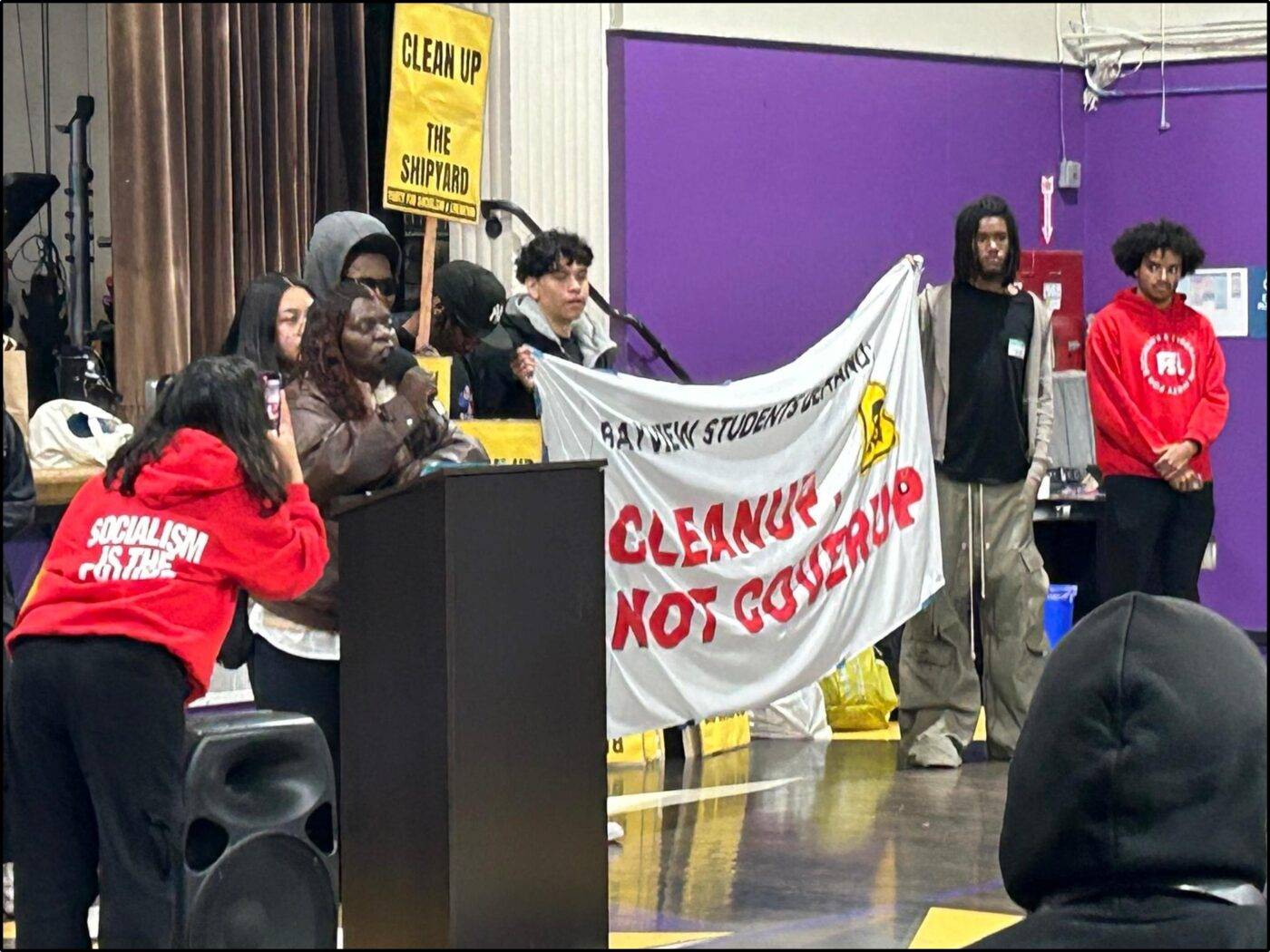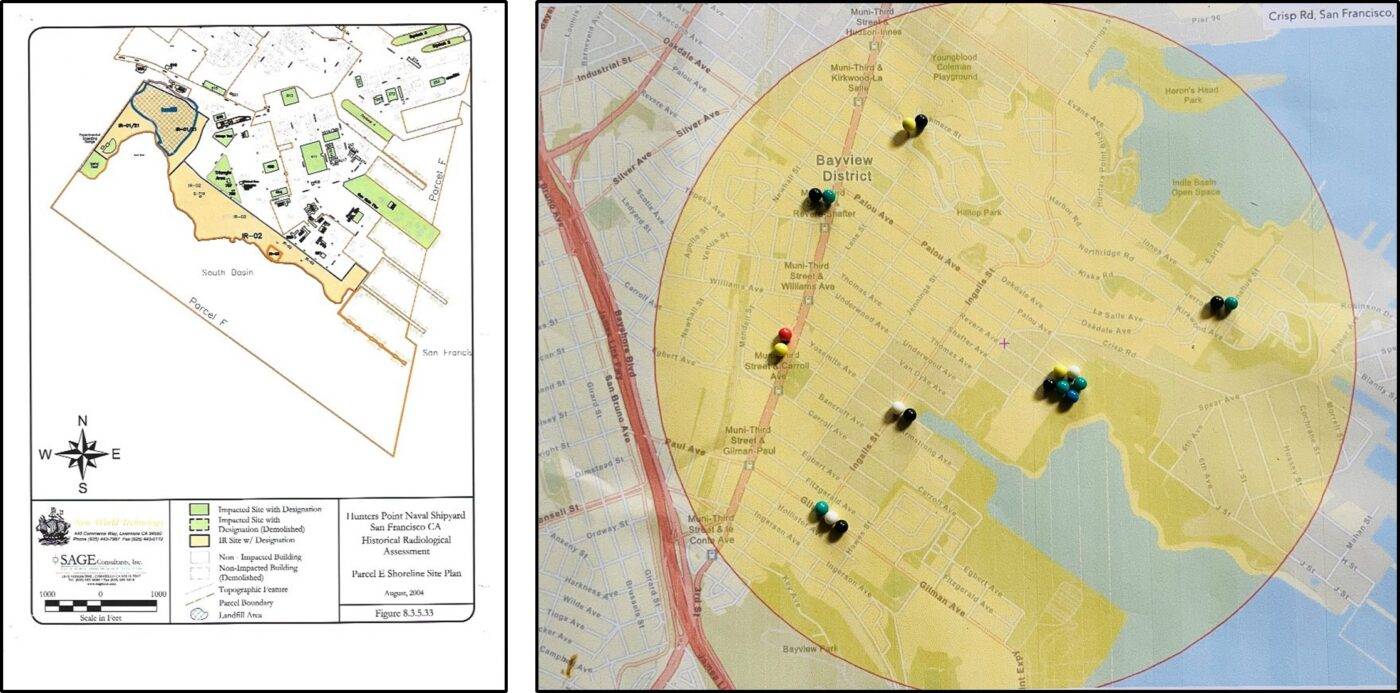
Hope for Hunters Point
by Ahimsa Porter Sumchai MD
The Nuclear Cluster @Hunters Point was unveiled to the San Francisco Health Commission on Sept. 3, 2024 (https://www.sf.gov/meeting/september-17-2024/september-17-2024-health-commission-meeting). The Nuclear Cluster @Hunters Point (NC@HP) is a cohort of 11 current and childhood residents living within the half mile perimeter of the Hunters Point Naval Shipyard (HPNS) Federal Superfund site who have atomic bomb residues in high concentrations in their body burdens, detected in biomonitoring screenings independently conducted by the Hunters Point Community Biomonitoring Program and James Dahlgren Medical, between Jan. 19, 2021 and July 3, 2022. (See “The Bomb in Our Backyard”: http://sfbayview.com/2009/08/the-bomb-in-our-back-yard b nhand “Quest to Detect Plutonium”: https://sfbayview.com/2021/12/quest-to-detectplutonium/.)
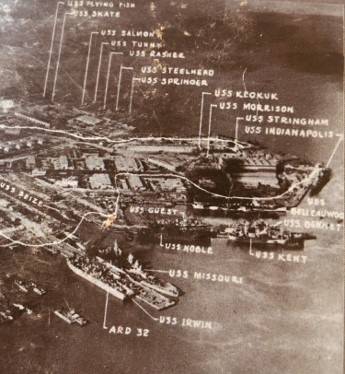
The NC@HP represents the most specific geospatial mapping of the Hunters Point Biomonitoring Foundation to date, offering definitive evidence of exposure to ionizing radiation emanating from the Naval Radiological Defense Laboratory complex and the radiation contaminated Parcel E-2 Industrial Landfill. (See “Radioactivity found at Hunters Point Prompts calls for Cancer Screening”: https:// youtu.be/5aUYkLW4t20?si=1ccsrC9PVvfGeVqT.)
The NC@HP offers clear and convincing evidence of human exposure to products of nuclear fission and decay. Irrefutable evidence that is beyond a reasonable doubt has been submitted into federal deposition exhibits in USA v. Tetra Tech EC, Inc., et al (Case 3:13-cv-03835-JD Filed 01/14/19 Northern District of California).
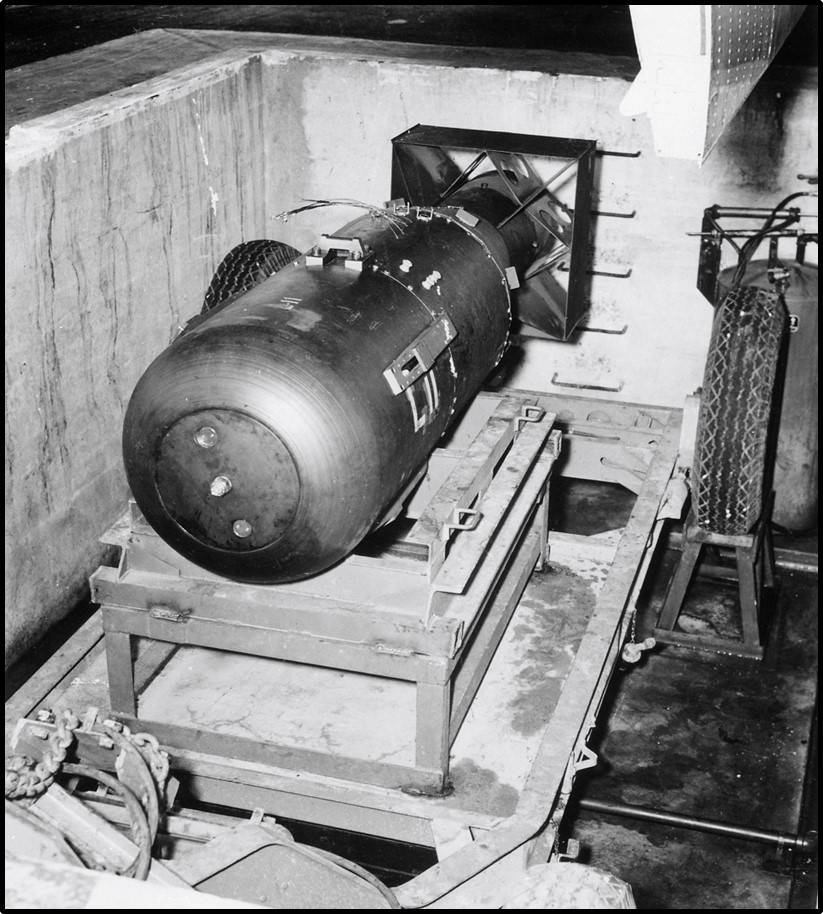
“The Hinkley case sparked a trend for PG&E and other large corporations: to hide the facts, to set aside blame, and to sweep their issues under the rug.” – “Hinkley Groundwater Contamination: How PG&E Avoided Negotiation” by Cory Baker JD, California Supreme Court Historical Society 2016 Student Writing Competition
As explained in the featured article by Max Genecov, “Still toxic after all these years” (https://grist.org/Array/the-true-story-of-the-town-behind-erin-brockovich/), in 1996, residents of Hinkley, California, won a $333 million settlement against Pacific Gas & Electric headquarters in San Francisco for contaminating the water supply of 650 residents with toxic chromium-6. The settlement was the largest toxic tort class action lawsuit in American history at that time.
Hinkley v PG&E was filed on behalf of Hinkley residents by the law firm of Ed Masry after learning their groundwater had been contaminated from 1952 to 1966 by the cancer causing heavy metal hexavalent chromium.
As factually depicted in the award winning 2000 movie “Erin Brokovich,” PG&E settled after evidence was uncovered by Los Angeles legal clerk Erin Brockovich that PG&E’s San Francisco headquarters was aware of and concealed the human exposures. The breach of ethics raised by when the utility giant became aware of the human exposures caused by chemical contamination of its unlined wastewater ponds remains central to the legal debate.
James Dahlgren Medical is founder of Pacific Toxicology Laboratories in Los Angeles, serves as editor of Human Toxic Chemical Exposures and is listed in the JurisPro Expert Witness Directory (https://www.jurispro.com). Between June 11, 2022, and July 3, 2022, James Dahlgren Medical financed, designed and conducted 24-hour collection urinary speciated assays capable of detecting the products of nuclear fission and decay present in uranium and plutonium bombs. The total cost of the testing program was $60,000. Dr. Dahlgren was reimbursed by the Hunters Point Biomonitoring Foundation through funds awarded by the Environmental Justice Data Fund in August 2022.
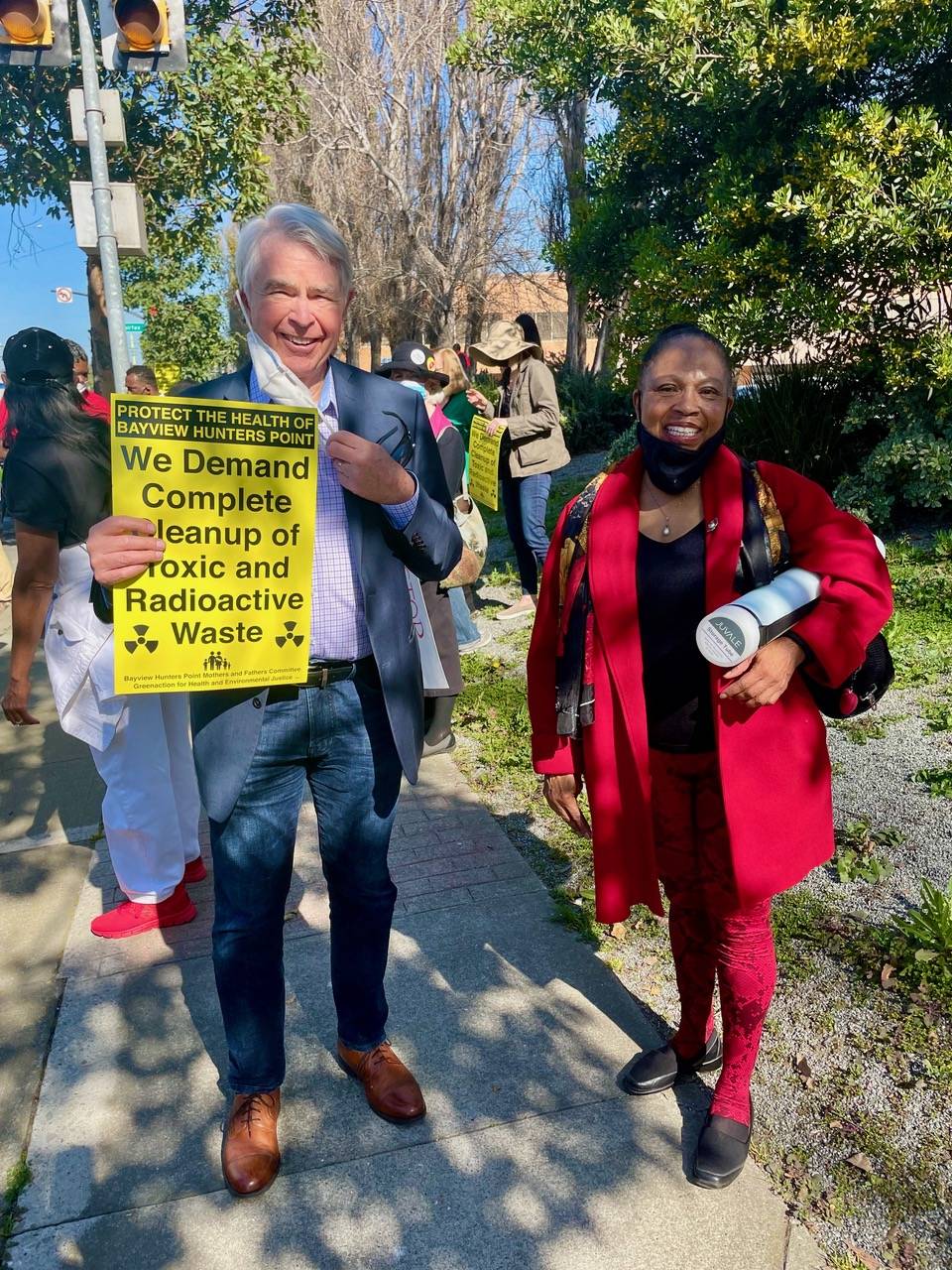
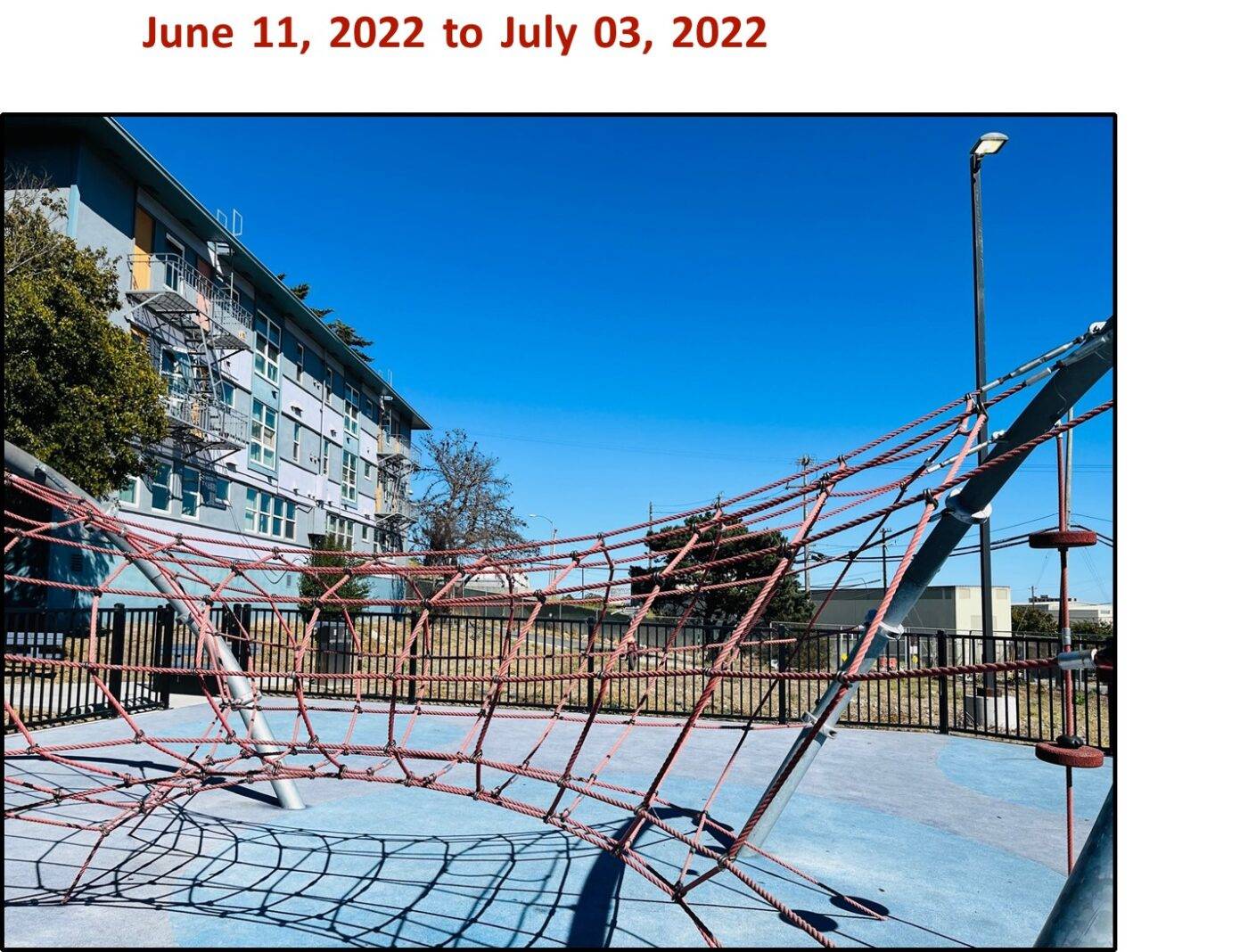
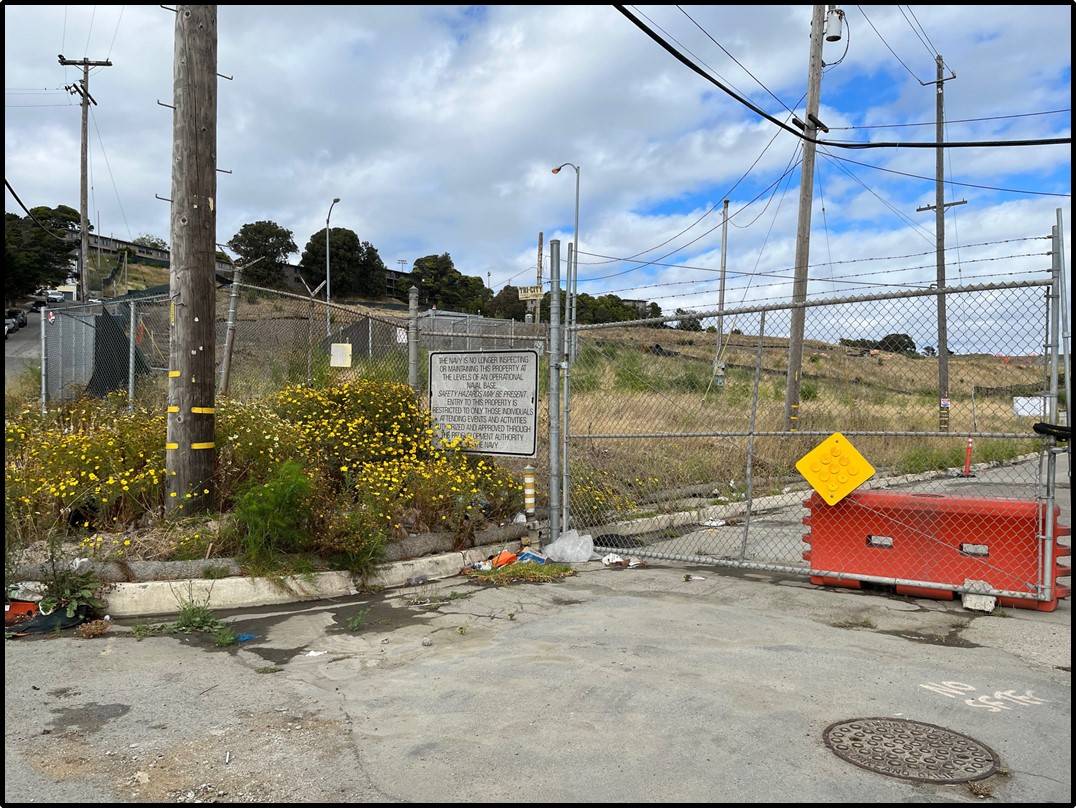
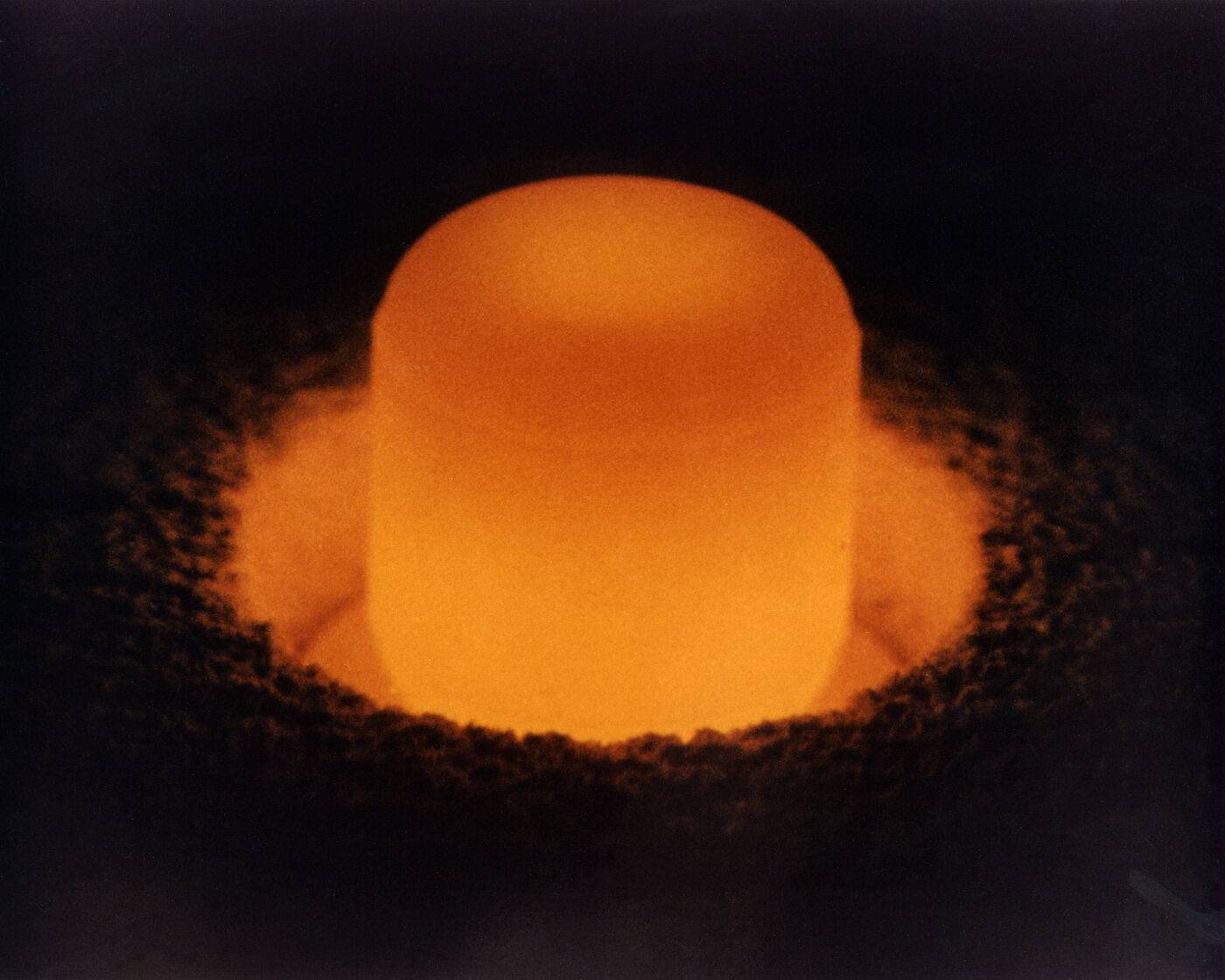
Plutonium-238 was the first isotope of plutonium discovered by Nobel Prize recipients Glen T. Seaborg and associates in December 1940 using the 60-inch cyclotron at the University of California Lawrence Radiation Laboratory. Pu-238 was first used in nuclear weapons components made at Lawrence Livermore National Laboratory, where it was assigned the highest relative hazard number of all 256 radionuclides in use. Pu-238 powered spacecraft technology including Voyager 1 and 2 and the Mars 2020 Perseverance Rover.
Pu-238 was detected in high concentrations in a Hunters Point fence line resident on July 27, 2022, by James Dahlgren Medical and 3TM Consulting, LLC.
The Nuclear Cluster originally consisted of 15 residents and UCSF workers, located within six blocks of the western fence line of the NRDL (Naval Radiological Defense Laboratory) campus and industrial landfill. All 15 underwent urinary screenings, conducted by HP Biomonitoring between 2000 and 2022, that detected carcinogenic and radioactive heavy metals that are radionuclides of concern documented by the 2004 Historical Radiological Assessment.
Unfortunately, the initial laboratory set detection limits for radioisotopes in urinary assays in concentrations so high that assays conducted by James Dahlgren Medical on four UCSF workers were invalid – at a financial loss of $16,000.
Five of the 15 underwent repeat urinary screening that detected worsening exposures to arsenic and radioactive heavy metals, including cesium, uranium, thallium, gadolinium, rubidium and tungsten. A Hunters Point homeowner living on Kiska Road underwent four separate biomonitoring tests of her urine and hair between March and June of 2022 that documented worsening exposures to arsenic, cesium, thallium and radioactive K-40.
The Nuclear Cluster @Hunters Point is a cohort of 11 current and former childhood residents living 100 feet to six blocks from the base, who range in age from 15 to 82. All have one or more products of nuclear fission or decay detected in high to extreme concentrations in their body burdens.
Radioactive K-40, a nuclear decay product, was detected in all 11 members of the cohort. Pu-244 was detected in eight. K-40 has a half life of 1.5 billion years. The primordial radioisotope Pu-244 has a half life of 80 million years. One 24 hour speciated urinary screening detected K-40 in concentrations 13 times higher than allowable along with high concentrations of radioisotopes capable of triggering an atomic bomb chain reaction: Pu-239 and U-235.
NC@HP detected the following radioisotopes classified as fissile, fissionable and fertile in high concentrations in HP Biomonitoring’s toxic exposure screenings and in the 24 hour collection speciated screenings conducted by James Dahlgren Medical: elemental cesium, elemental uranium, Pu-238, Pu-239, U-233, U-235, U-238 and speciated total uranium.
Eight members of NC@HP are female and three are male. Of the eight females, one identifies as non binary and another as LGBQT. African Americans represent seven members of the cohort while European Americans and a European foreign national represent three. A multiracial female of Hispanic ethnicity is one of the most dangerously exposed with radioactive and cancer causing chemicals detected in two screenings conducted by HP Biomonitoring and the detection of the atomic bomb residues U-235 and Pu-235.
She is battling terminal leukemia, COPD, neuromuscular disorders and basal cell skin cancer and lives in senior housing half a mile west from the radiation contaminated panhandle and metal reef area of the base at the north shore of Yosemite Slough.
Radionuclides of concern, listed in both the HRA and 2019 EPA Radiological Remedial Goals, are detected in the NC@HP cohort, in extreme concentrations, in Hunters Point residents living within the half mile perimeter of the Hunters Point Naval Shipyard. Additionally, HP Biomonitoring detected barium, bismuth, cobalt, cesium, gadolinium, potassium, strontium and thallium in over 120 screenings and rescreenings conducted documenting worsening exposures to date. (See https://www.hunterspointcommunitybiomonitoring.net.)
Key findings of the Nuclear Cluster at Hunters Point
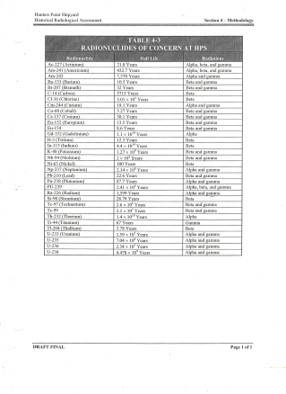
Key findings of the NC@HP are summarized as follows:
1. Radioactive potassium, K-40, was detected in all 11 current and childhood residents tested using the 24 hour speciated biomonitoring test conducted by James Dahlgren Medical. Radioactive K-40 is a naturally occurring radioisotope present in atomic bombs with a half-life of 1.2 billion years. K-40 emits gamma radiation, a radiation hazard emitted by the unstable nucleus of an atom during radioactive decay. Gamma rays can penetrate skin and clothing with so much power that lead and concrete are required to stop them.
2. In 2018 the California Department of Public Health cleared Parcel A of radiation hazards despite the discovery of a gamma emitting Ra-226 deck marker and 110 above background gamma emitters attributed to “naturally occurring radioactive potassium.” Of note, the report did not include a spectral analysis to prove the gamma emissions were not from another source like Radium 226 or Manganese 54.
3. Radioactive K-40 was detected in extreme concentrations in seven of 11 residents tested in NC@HP, including a long term resident diagnosed with breast cancer and skin cancer, with potassium levels so high on routine blood tests she was warned, by UCSF oncologists, not to eat bananas. Bananas contain radioactive K-40 and emit naturally occurring radiation – called a banana equivalent dose.
This conclusion is patently false. According to the Human Health Fact Sheet: “Potassium 40 can present both an external and an internal health hazard. The strong gamma radiation associated with electron capture decay which occurs 11% of the time makes external exposure to K-40 isotope a concern. While in the body, K-40 poses a health hazard from both the beta particles and gamma rays. The health hazard of K-40 is associated with cell damage caused by the ionizing radiation that results from radioactive decay, with the potential for cancer induction.”
In July of 1946, joint military nuclear weapons tests – code named Operation Crossroads – launched a fleet of over 300 target and support ships from the Hunters Point Naval Shipyard to the Bikini Atoll. Over that year, an estimated 100 ships exposed to two 20 kiloton Fat Man plutonium bombs were returned to Hunters Point for decontamination using a combination of wet sandblasting and acid solutions. Shipyard personnel burned 610,000 gallons of oil contaminated during Operation Crossroads to measure the amount of radioactivity in the fumes.
4. Five members of the NC@HP have products of nuclear fission detected as proof of human exposure to Uranium-235 and Plutonium-239 atomic bomb residues. The NC@HP Nuclear Cohort offers irrefutable evidence of ionizing radiation exposures 100% specific for HPNS and includes a woman with acute leukemia and “weeks to live”with K-40 detected in concentrations 13 times higher than allowable and elevated levels of Pu-239/240, Pu-244 and U-235/236.
5. The NC@HP Nuclear Cohort includes domestic partners living 100 feet from the unfortified chain metal fence separating the radiation contaminated Parcel E-2 Industrial landfill from San Francisco city streets. Both have K-40 and the fissile product U-233 detected in high concentrations.
6. The most definitive findings of the Nuclear Cluster are the detection of total uranium in four members of the same family and the detection of K-40, Pu-244 and extreme concentrations of total uranium, U-233, U-238 in 24 hour collection speciated assays conducted by James Dahlgren Medical on three oldest family members, including the senior male.
7. A professional woman grew up adjacent to Yosemite Slough Federal Superfund site and now lives on the Hunters Point hilltop, five blocks northwest of the base. She has a family history of cancer and was diagnosed with a brainstem glioma and thyroid cancer. K-40, Pu-244, U-238 and total uranium were detected in her urine in extreme concentrations.
8. Residents currently living within the 100 feet to six blocks perimeter of the Hunters Point Naval Shipyard Federal Superfund system, its Crisp Road historical corridor of entry to the United States Radiological Defense Laboratory complex and Parcel E-2 Industrial Landfill, comprise the “heat” of ROC (Radionuclides of Concern) clusters in manual pinned and digital recreations by Hunters Point Biomonitoring Foundation and GreenInfo Network. The NC@HP represents the population most dangerously exposed.
Dr. Ramona Tascoe, HP Biomonitoring co-founder and consulting physician, receives White House commendation
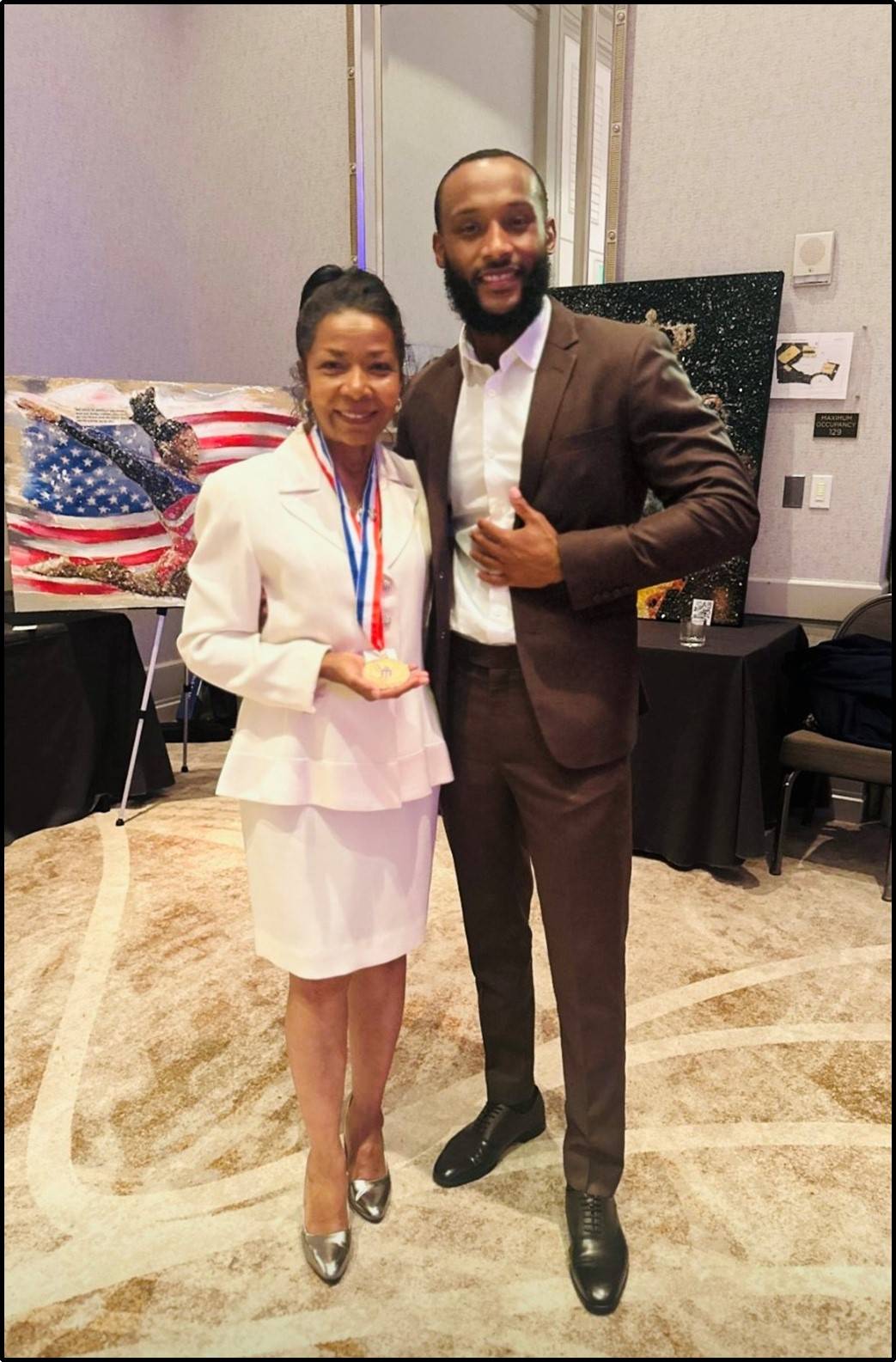
Recipient of many honors in addition to the White House commendation, Dr. Ramona Tascoe served as 2019 president of the UCSF Medical Alumni Association and received the UCSF School of Medicine 2018 Alumna of the Year Award. (See https:// alumni.ucsf.edu/stories/ramona-tascoe.)
Dr. Tascoe and Dr. Sumchai founded the Hunters Point Community Biomonitoring Program beginning in 2018. Both are proteges of Dr. Carlton Benjamin Goodlett, PhD, MD.
Dr. Tascoe grew up on Thomas Avenue next to the shipyard’s Crisp Road entry. Her father, Ernest Hamilton Tascoe Jr., traveled to San Francisco from Louisiana during the “Great Migration” and worked as an HVAC engineer trusted with the six story floor plans for Building 815, headquarters for the Naval Radiological Defense Laboratory (NRDL). (See https://asumchai.medium.com/the-heritage-of-our-fathers-43e4e98a7b32.)
Ernest Tascoe died shortly following the NRDL closure in 1968 from mesothelioma, a cancer of the lung caused by exposure to asbestos.
In 2019, Dr. Tascoe co-founded the launch of the Hunters Point Community Biomonitoring Program with support from the UCSF School of Medicine Medical Alumni Association. Ramona Tascoe MD now serves as consulting physician for the Hunters Point Community Toxic Registry. She can be reached at 415-349-4424.
Hope for Hunters Point
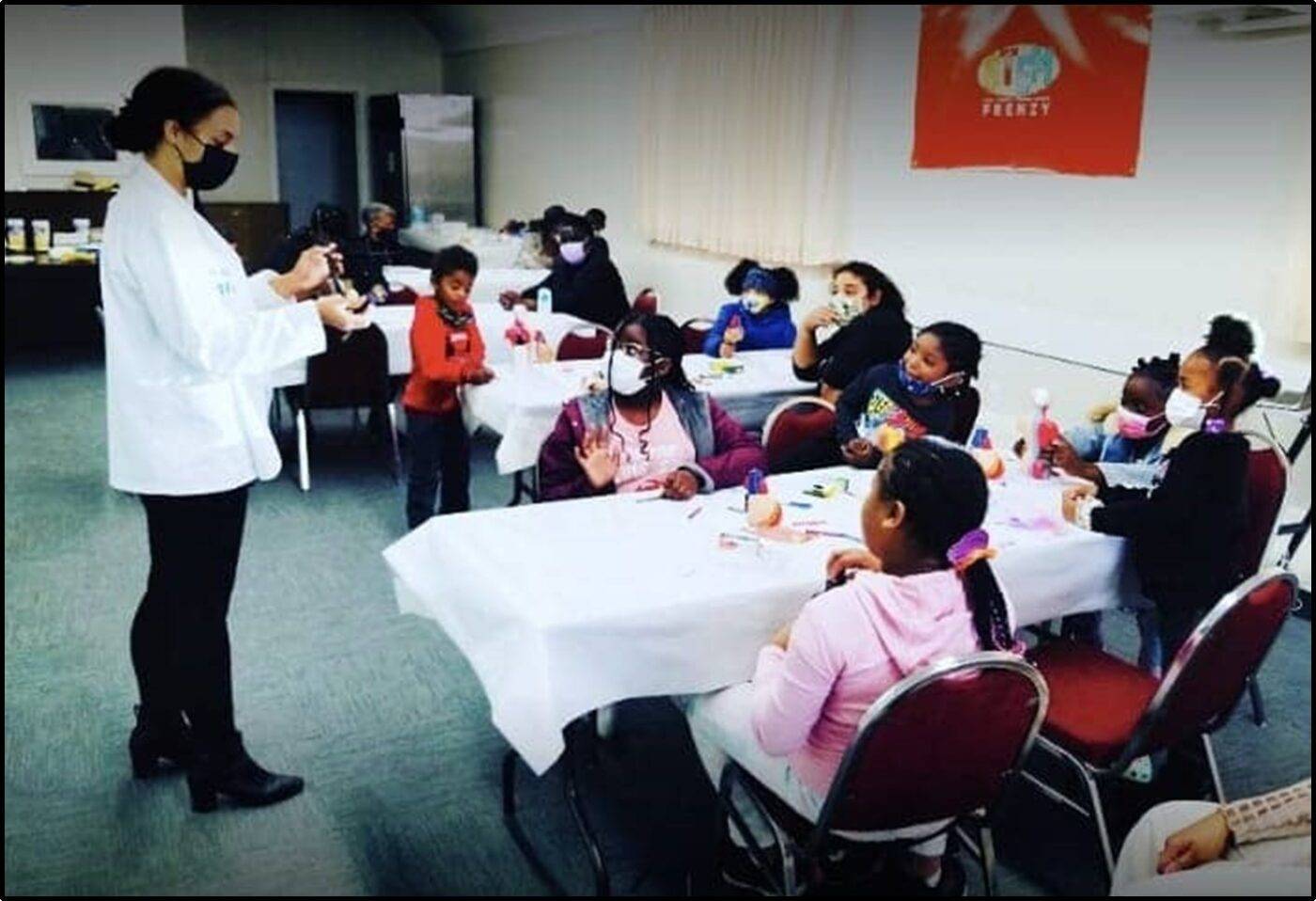
“Actinides, such as uranium and plutonium, are radioactive metals with no natural biological function. However these elements are strongly retained … and can be extremely toxic due to their radioactive and chemical properties. In the event of an accidental or ill-intentional release of nuclear material into the environment, these radionuclides pose a severe health risk as contaminants. The only practical therapy to reduce the dramatic health consequences of contamination is with chelating agents.” – Rebecca J. Abergel, “Metal Chelation in Medicine”
Rebecca Abergel PhD is associate professor of Nuclear Engineering at UC Berkeley and faculty scientist for the Heavy Element Chemistry Program at Lawrence Berkeley National Laboratory. Dr. Abergel is co-founder of HOPO Therapeutics.
In 2021, HP Biomonitoring investigators met with Julian Rees PhD, who, in partnership with UC Berkeley professor of nuclear engineering Rebecca Abergel PhD, is developing pharmaceuticals designed to treat exposure to heavy metals. (See https://sfbayview.com/2022/03/hp-biomonitoring-promising-hope-for-hunters-point/.)
Their flagship drug candidate, HOPO 14-1, coined HOPO Tx, is presently recruiting for Phase 1 Clinical Trials. (See https://clinicaltrials.gov/study/NCT05628961/.) Hunters Point residents and workers exposed to radioactive and cancer causing heavy metals may want to participate in Phase II clinical trials.
